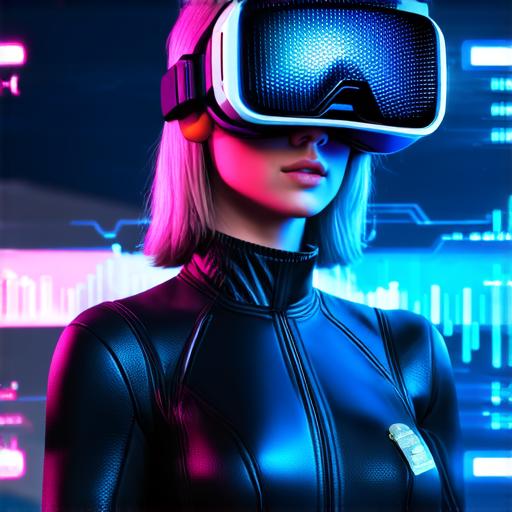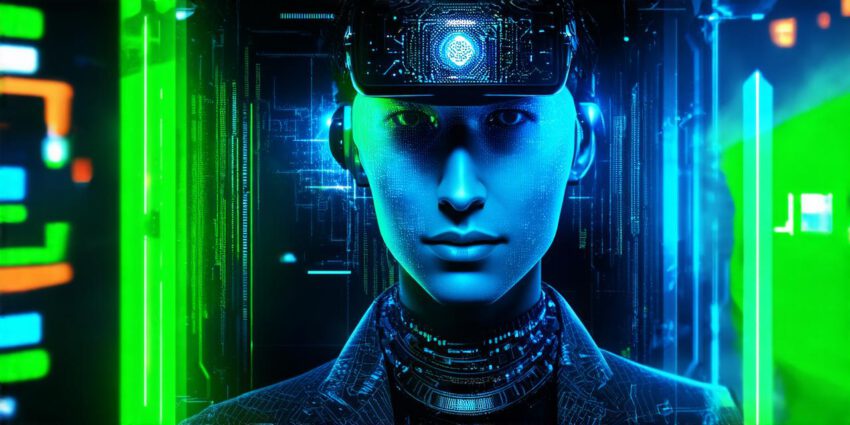Virtual Reality Enhances Learning Potential
Virtual reality (VR) is revolutionizing the way we learn and experience the world. With the rise of mobile gaming apps, VR technology has found a new platform for delivering engaging and immersive learning experiences.
Virtual Reality Technology
Virtual reality technology allows users to experience a simulated environment that mimics the real world or an imaginary world. The immersive nature of VR technology creates a sense of presence and engagement, making it ideal for delivering learning experiences.
Mobile Gaming Apps
Mobile gaming apps have become increasingly popular, with millions of people around the world downloading games on their smartphones and tablets. These apps offer a range of interactive and engaging games that can be played anywhere, anytime.
Learning Potential of VR Technology
The learning potential of virtual reality technology is vast. Studies have shown that VR technology can improve memory retention, increase engagement, and promote creativity. In the context of mobile gaming apps, VR technology can be used to create interactive games that teach a range of skills and concepts.
Virtual Reality in Education
Virtual reality technology has already found its place in education, with many schools and universities using VR simulations to teach subjects such as anatomy, history, and science. By integrating VR technology into mobile gaming apps, we can extend this educational potential to a wider range of learning experiences.
Virtual Reality and Gamification
Virtual reality technology is closely associated with gamification, the process of using game design elements in non-gaming contexts. By incorporating gamification principles into VR technology, mobile gaming apps can create engaging and interactive learning experiences that motivate users to learn and develop.
Case Studies: Virtual Reality in Mobile Gaming Apps
Google Expeditions
Google Expeditions is a virtual reality app that allows students to explore the world through 360-degree images and videos. The app has been used in classrooms around the world, with students using it to learn about history, science, and art. By integrating VR technology into mobile gaming apps, we can create similar learning experiences that engage users and enhance their learning potential.

Anatomy 4D
Anatomy 4D is a virtual reality app that allows medical students to explore the human body in 3D. The app has been shown to improve memory retention and increase engagement, making it an effective tool for teaching anatomy and physiology. By integrating VR technology into mobile gaming apps, we can create similar learning experiences that teach a range of skills and concepts.
Virtual Reality and Mobile Learning
Virtual reality technology has the potential to revolutionize mobile learning by creating immersive and interactive learning experiences that engage users and enhance their learning potential. By incorporating VR technology into mobile gaming apps, we can create games that are more engaging and motivate users to learn and develop.
Benefits of VR Technology in Mobile Gaming Apps
Increased Engagement
Virtual reality technology is highly engaging, with users spending more time in virtual environments than in real-world environments. By using VR technology in mobile gaming apps, we can create games that are more engaging and motivate users to learn and develop.
Enhanced Creativity
Virtual reality technology allows users to explore new worlds and ideas, which can enhance creativity and promote innovation. By integrating VR technology into mobile gaming apps, we can create games that encourage users to think creatively and develop new skills and concepts.
Improved Memory Retention
Studies have shown that virtual reality technology can improve memory retention and increase engagement, making it an effective tool for learning and development. By incorporating VR technology into mobile gaming apps, we can create games that enhance memory retention and promote learning and development.
Challenges of VR Technology in Mobile Gaming Apps
Cost
Virtual reality technology can be expensive, with high-end VR headsets and computers costing thousands of dollars. By integrating VR technology into mobile gaming apps, we need to ensure that the technology is accessible and affordable for a wide range of users.
Technical Challenges
Integrating VR technology into mobile gaming apps can present technical challenges, with developers needing to optimize games for different VR platforms and devices. By working closely with VR platform developers and device manufacturers, we can overcome these challenges and create seamless learning experiences.
Summary
Virtual reality technology has the potential to revolutionize mobile learning by creating immersive and interactive learning experiences that engage users and enhance their learning potential. By incorporating VR technology into mobile gaming apps, we can create new opportunities for learning and development that are accessible, engaging, and effective. As virtual reality technology continues to evolve, we can expect to see even more innovative ways of using VR in mobile gaming apps and other areas of learning and development.

